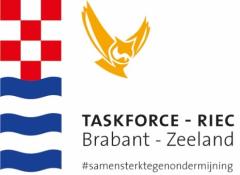Attention to housing and working conditions for migrant workers
Migrant workers are becoming increasingly important to Dutch companies. Without them, many companies could not exist. At the same time, these employees are not always properly housed and paid by the employment agencies. Many agencies have been paying attention to this for a long time. In recent weeks, integral inspections have been carried out in East Brabant.
These were integral checks at 75 locations in the region, from housing to workplaces. The network partners in East Brabant work together to ensure that laws and regulations are complied with, that everyone is given equal opportunities and that the living environment is and remains safe. When there are suspicions that these issues are at stake, they act together. The integrated inspections involved 18 municipalities, five administrative integrated intervention teams and the East Brabant Police Force. This was also joined by the Southeast Brabant Environmental Service and the Brabant-Zuidoost Safety Region. The regional labor inspectorates contributed by checking for "Fair and Safe Work. Besides checking living and working conditions, the inspections also focused on raising awareness among both labor migrants and supervisors.
Much in order, but also much wrong
Most business owners want the people who work for them to be treated well and fairly. Simply, because they think it's important, but also because people who are paid fairly and housed well can do their jobs better and are less likely to change workplaces. And that's important in this tight labor market. At many of the locations visited, living and/or working conditions were largely in order. Unfortunately, violations were also found. Findings and results:
- Building permit/decision deviation
- Occupancy not in accordance with the Basic Registration of Personal DataBRP)
- Fire hazards
- Various signs of labor exploitation under further investigation (see example)
- More, valuable insight into the current situation through conversations supervisors had with migrant workers: about 350 migrant workers were talked to. These were valuable conversations that contribute to awareness among this vulnerable group. For example, about their rights and obligations.
- Several uninsured vehicles found with outstanding fines (bycatch)
- Some 'aliens' detained (without residence permits)
Example
During conversations with migrant workers, the owner put pressure on them (by phone). The migrant workers reacted visibly anxious. Among other things, they had to indicate from the owner that only four people were staying there, while the supervisors saw that dozens of sleeping places were in use. The migrant workers were not in possession of a labor contract and did not receive a paycheck.
During this administrative inspection in East Brabant, the owner did not cooperate. The inspectors therefore exercised their right to enter the premises and carried out the inspection without him being present.
Signs of human trafficking are not always easy to recognize. Mattresses on the floor or, as in this case, intimidation, no employment contract, and no pay slips are clear signs that something is wrong.
You need to know what to look out for
As part of the human trafficking pilot project currently underway in this region—labor exploitation being one of its manifestations—the Regional Human Trafficking Roundtable emphasizes the importance of awareness and effective identification. For this reason, investments have been made this month in raising awareness among both regulators and vulnerable groups. The Human Trafficking Expert from Taskforce-RIEC Brabant-Zeeland provided training to a total of 59 supervisors. She used the new VR Experience Human Trafficking to raise awareness among supervisors of the seriousness of human trafficking. They briefly stepped into the role of victim, which was an intense experience for some. The comprehensive checks were also a learning opportunity to recognize the signs in practice.
FairWork organized an information session for Ukrainian refugees. Among other things, the session focused on the rights and obligations of employees in the Netherlands.
Open your eyes and report!
Reporting suspected labor exploitation can ensure that the victim receives help and support. And that suspects can be tracked down. Reporting is also important to gain insight into the nature and extent of labor exploitation in the Netherlands. This helps to improve the approach to labor exploitation. Where can people go with a suspicion?
- Police: 0900 8844
- Dutch Labor Inspectorate (if labor exploitation is involved): 0800 5151
- Anonymous:
- Report Crime Anonymously: 0800 7000 or online: https://www.meldmisdaadanoniem.nl/
- Criminal Intelligence Team (TCI) of the Dutch Labor Inspectorate: 06-1021 3445
